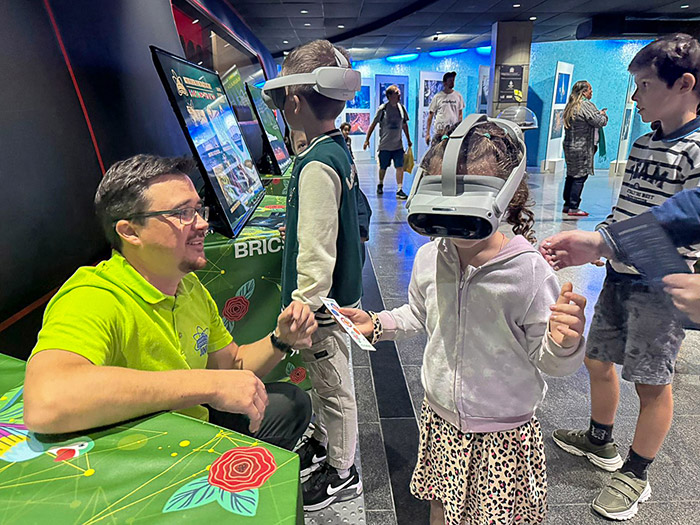
Electronic english version since 2022 |
The newspaper was founded in November 1957
| |
JINR researchers introduced Brazilian youth
to Institute’s scientific programme
The NAUKA 0+ international festival took place in Rio de Janeiro, Brazil, as part of the BRICS+ Open Science Week. The event was organized by the Ministry of Science and Higher Education of the Russian Federation, the Government of Moscow, Lomonosov Moscow State University (MSU), and the Russian Academy of Sciences (RAS). Researchers from JINR, Belarus, Brazil, China, Kazakhstan, Russia, and other countries actively participated in the festival, held annually in different countries of the world.
The first week was dedicated to the international Scientists to Schools educational campaign. Among participants were researchers, teachers, engineers, science popularisers, cosmonauts from leading scientific and educational centres and major technology companies in Russia, Brazil, and Belarus.
As part of the Scientists to Schools campaign, a software engineer at the Laboratory of High Energy Physics at JINR Nikita Sidorov explained to schoolchildren what scientists do at the NICA Collider and discussed the opportunities for Brazilian students and specialists to participate in the Institute’s projects. Campo Grande and Engeno di Dentro (suburban Rio de Janeiro neighbourhood) hosted the lectures.
At the plenary session of the International Forum of Science Communicators of the BRICS+ Open Science Week on 2 July, a researcher at the Laboratory of Neutron Physics at JINR Meir Yerdauletov made a presentation on the development of JINR–Brazil cooperation in 2025. In addition, he discussed the scientific programme and applied research at the IBR-2 Neutron Reactor.

The festival’s programme included scientific shows, master classes, popular science films by MSU scientists and engineers, the National Academy of Sciences of Belarus, Zaryadye Park experts, and others. The JINR booth featured a multimedia exhibition about the Institute’s key projects. In addition, guests could take virtual tours of the main facilities and learn about how they operate.
JINR Press Office